Are you looking to refine your manuscript with valuable feedback from trusted colleagues? Crafting a peer review request letter is essential in capturing their attention and encouraging their support. In this guide, we'll explore how to articulate your needs clearly while conveying respect for their expertise. Stick around to discover expert tips that will help you write the perfect peer review request!

Clear and polite introduction
Professional peer review requests should begin with a courteous introduction that expresses gratitude and acknowledges the recipient's expertise. Engaging an accomplished colleague in the field, especially one who has published works in relevant journals, reinforces the importance of their feedback. The introduction should clearly state the purpose of the letter, mentioning the specific manuscript title and its contribution to the discipline. A polite request for their evaluation, highlighting the value of their insights, sets a respectful tone for the collaboration in enhancing the research quality.
Purpose of the review request
The purpose of the review request pertains to the evaluation of a manuscript submitted for publication in a scholarly journal, focusing on environmental science. This involves requesting feedback from experts with significant experience in ecological conservation, climate change mechanisms, or sustainable practices to ensure accuracy, clarity, and relevance. Reviewers are encouraged to assess the study's methodology, results, and conclusions, particularly emphasizing new insights into ecosystem resilience in the Amazon rainforest, a key area facing anthropogenic pressures. Constructive criticism will be instrumental in refining the research, potentially impacting policies aimed at biodiversity preservation.
Specific guidance and focus areas for review
A peer review request requires clarity and focus on specific guidance areas to enhance the feedback process for academic or research papers. Key areas for review might include methodology, where it is essential to examine the sampling methods, data collection techniques, and statistical analyses employed. The literature review must also receive attention, ensuring it covers recent studies published in reputable journals and accurately positions the research within the existing body of knowledge. Clarity and coherence of the writing are crucial, requiring evaluations of structure, argument flow, and overall readability. Additionally, reviewers should assess the significance of the findings and their implications for the field, fostering discussions on practical applications. Finally, soliciting feedback on formatting and compliance with submission guidelines for journals can provide a comprehensive approach to improvement.
Deadlines and submission guidelines
Authors preparing manuscripts for peer review should adhere to specific deadlines and submission guidelines to ensure a smooth evaluation process. The submission window typically ranges from four to six weeks, starting from the initial invitation to submit a review. Guidelines often include formatting requirements such as font size (usually 12-point), line spacing (typically double), and specific citation styles (e.g., APA, MLA). Manuscripts must be submitted through online platforms like Manuscript Central or similar systems, which facilitate tracking and communication. Additionally, peer reviewers may be required to submit their reviews within three weeks after receipt of the manuscript to maintain the publication timeline. Following these protocols enhances the review quality and expedites the publication process, ultimately benefiting the academic community.
Gratitude and contact information
The gratitude expressed in peer review requests highlights the importance of collaborative efforts in academic research. Authors often convey appreciation towards peers for their time and expertise, recognizing the invaluable insights gained from constructive feedback. Contact information, including professional emails or institutional affiliations, facilitates communication and encourages a prompt response. The peer review process usually occurs in various academic fields, such as psychology and biology, where journals uphold standards of quality and rigor. Establishing a clear line of communication fosters an environment of respect and professionalism, vital in advancing scholarly work.

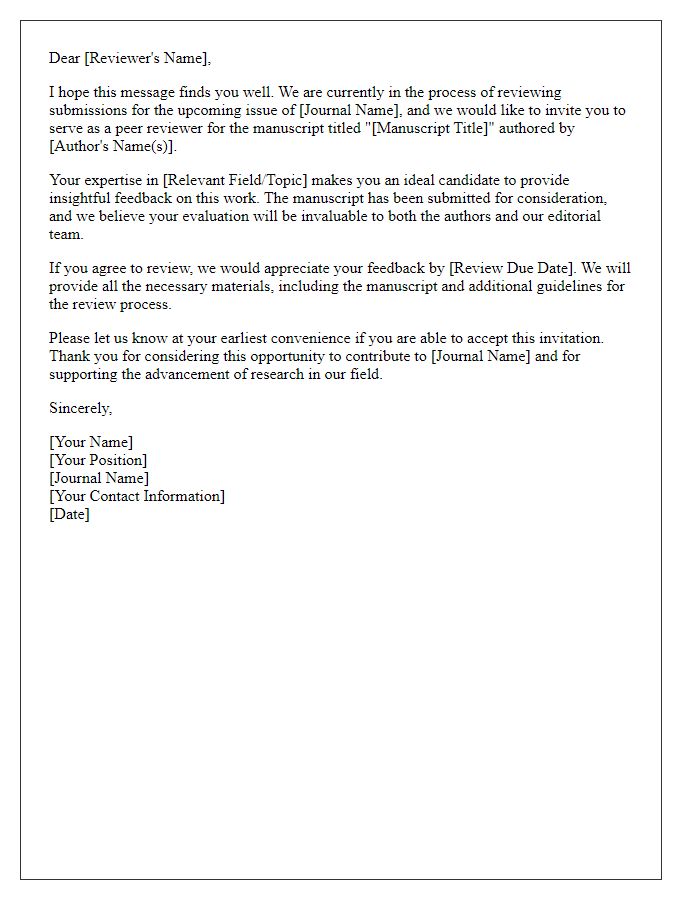
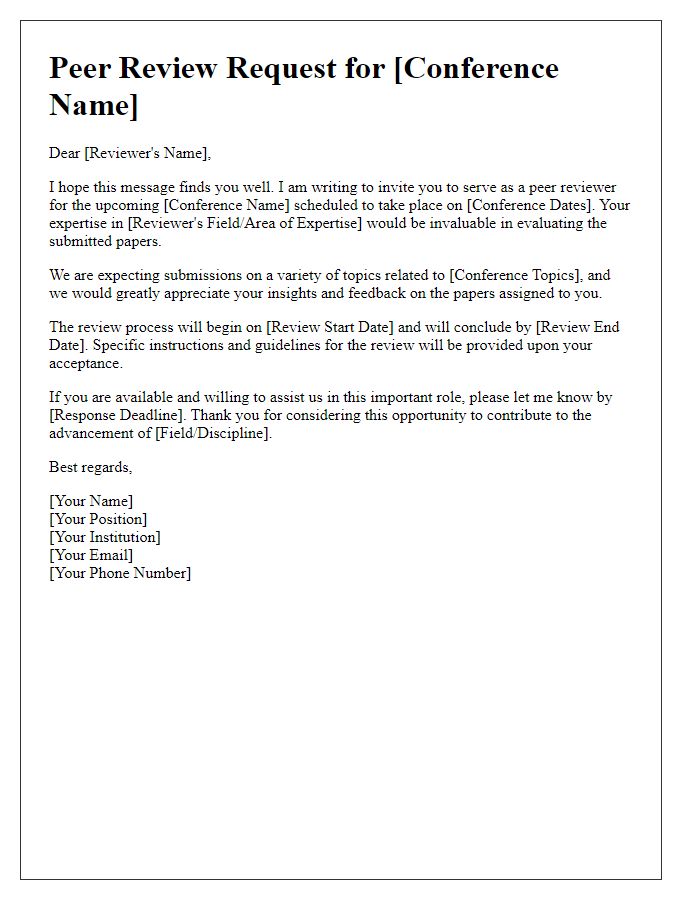
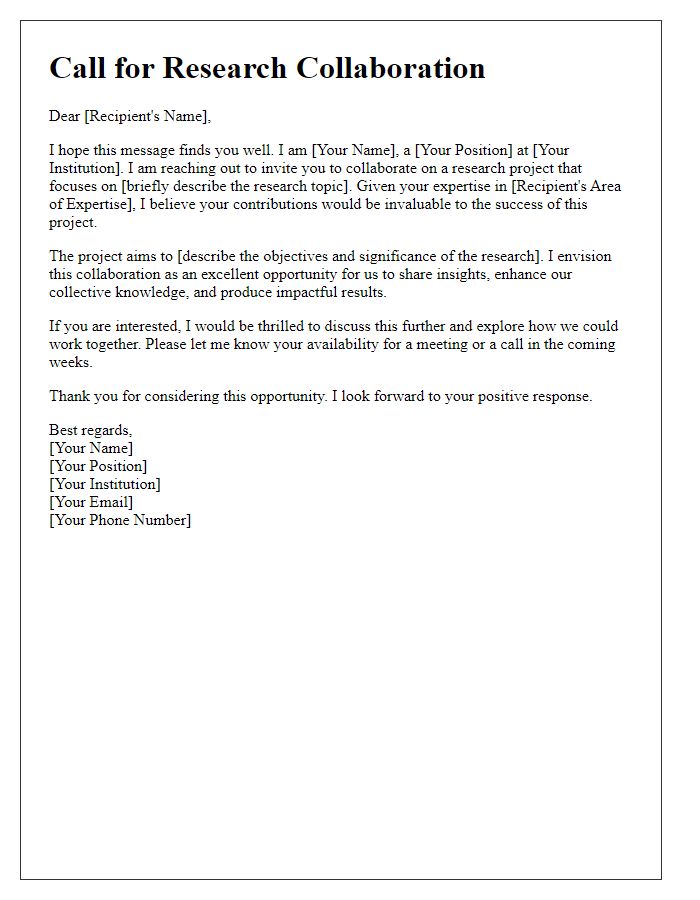
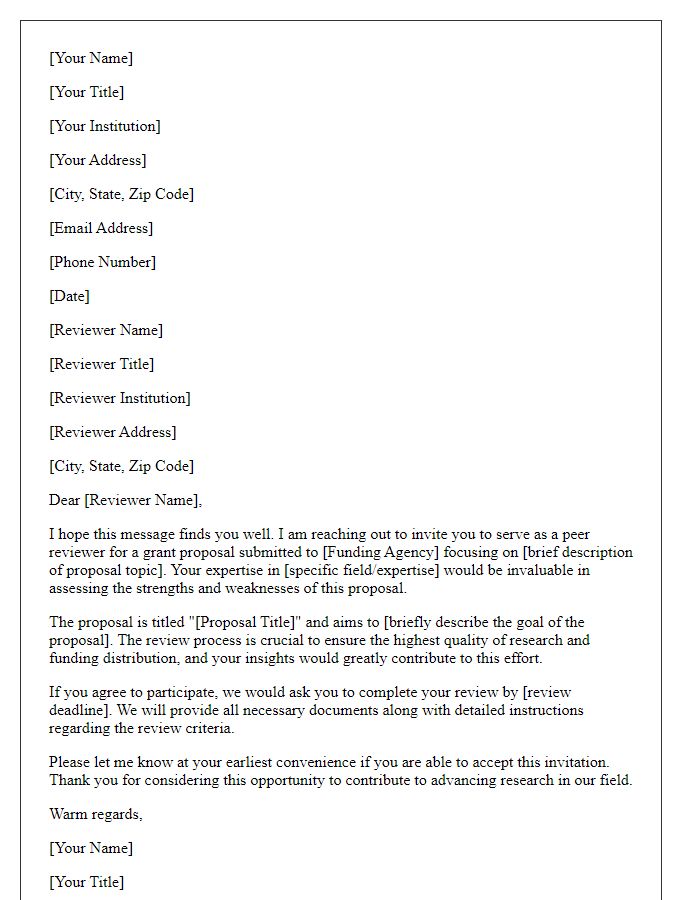
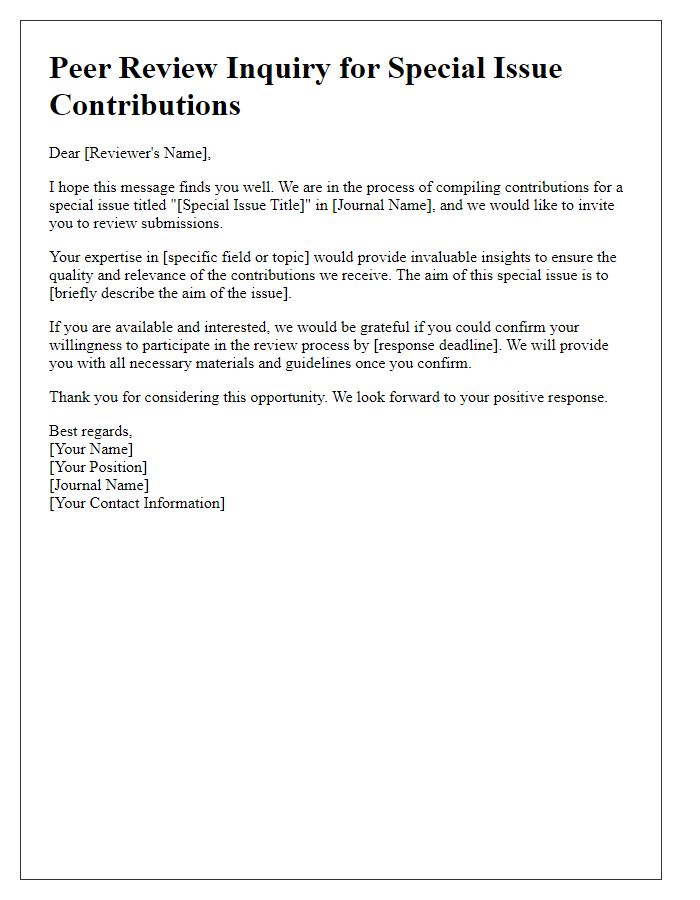
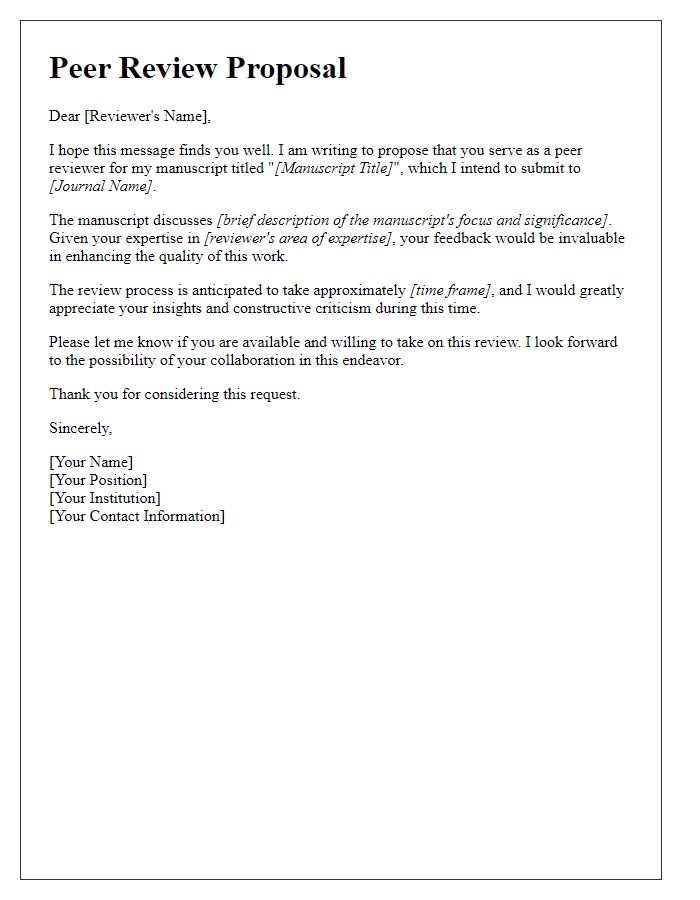
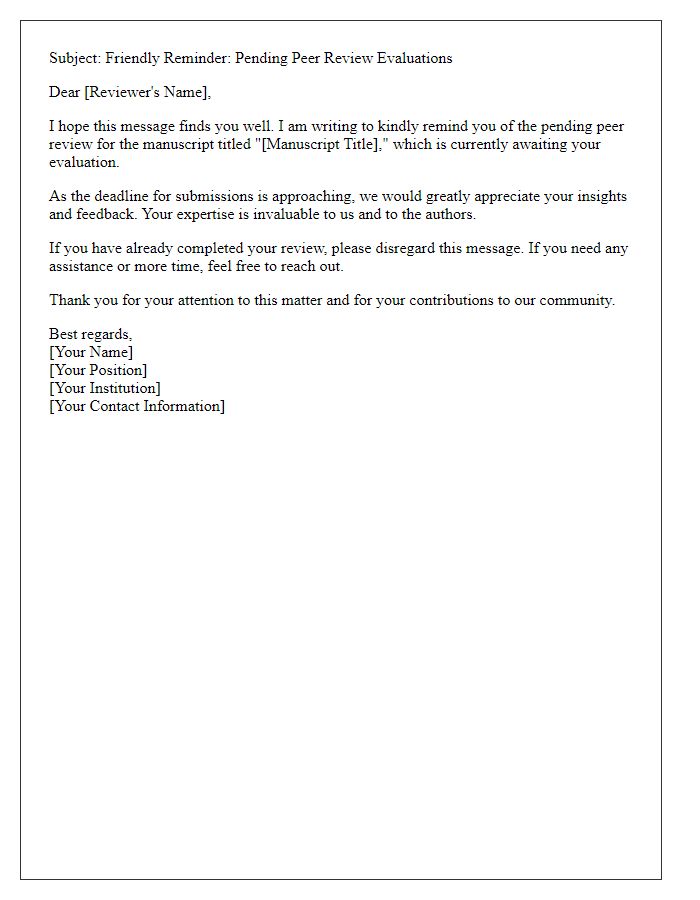
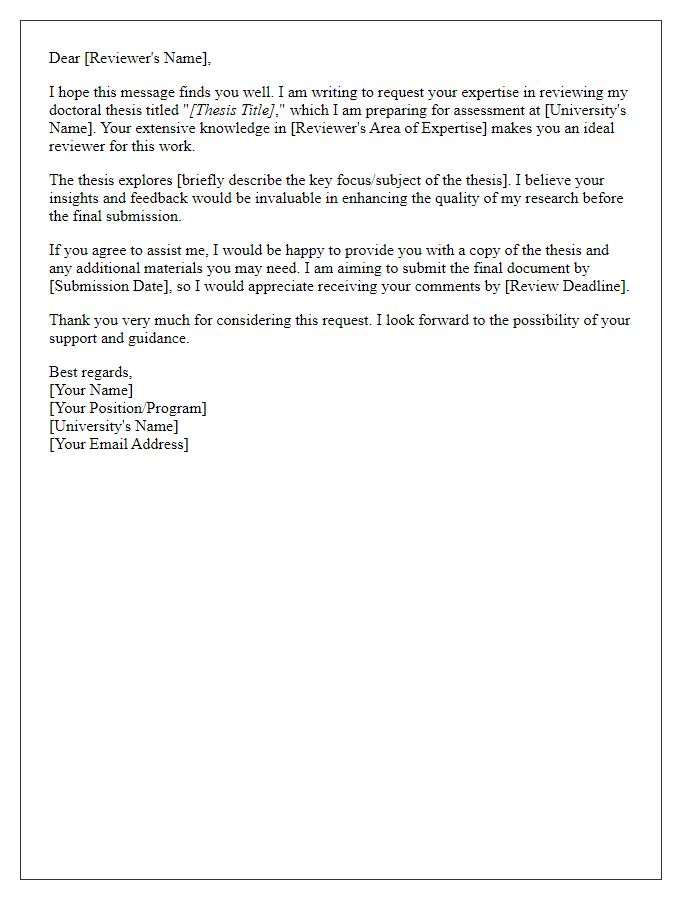
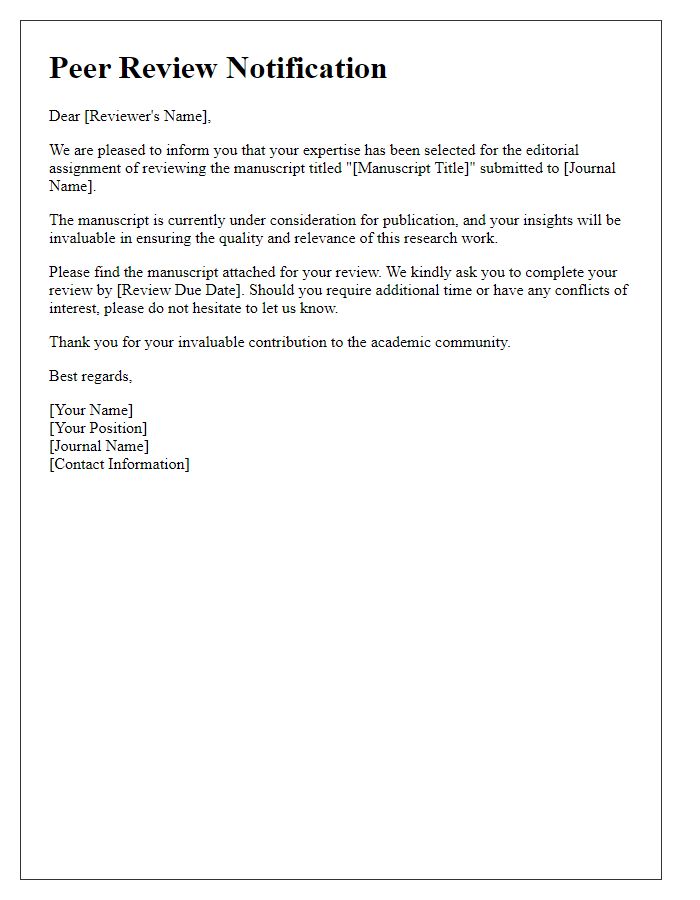
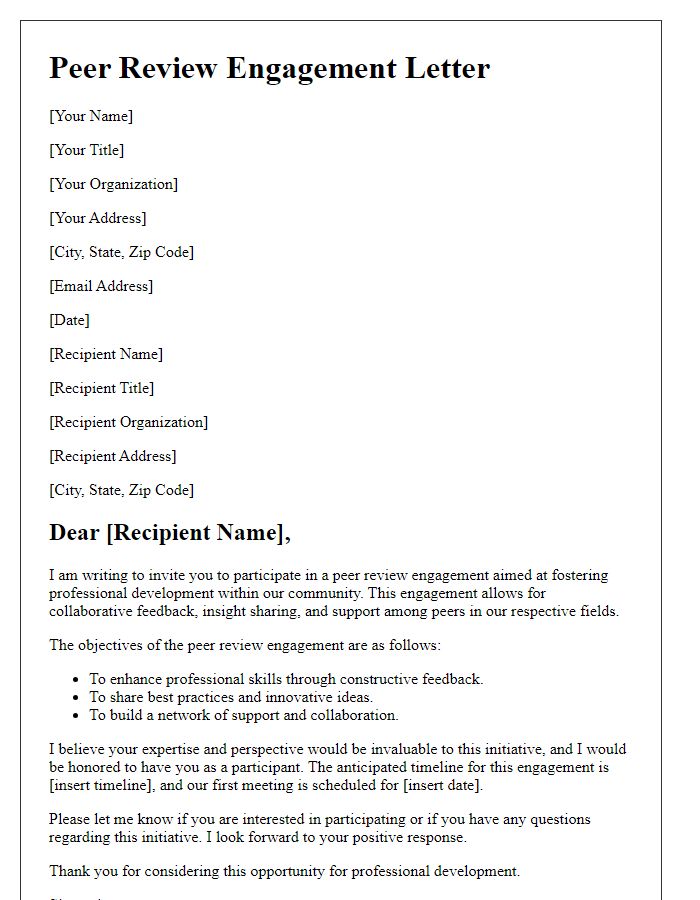


Comments